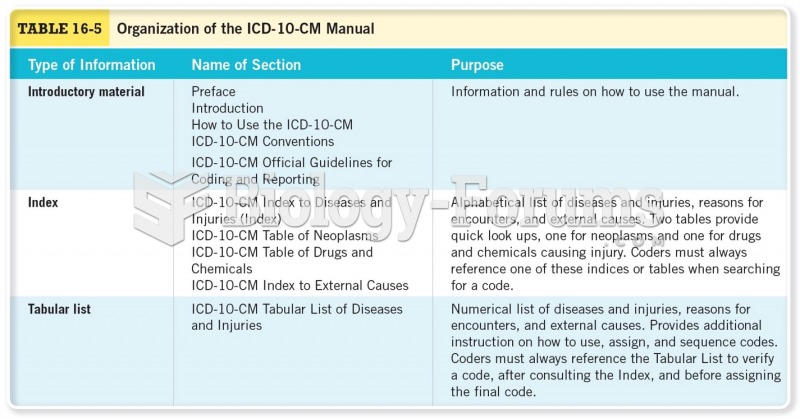|
|
|
Thyroid conditions may make getting pregnant impossible.
As the western states of America were settled, pioneers often had to drink rancid water from ponds and other sources. This often resulted in chronic diarrhea, causing many cases of dehydration and death that could have been avoided if clean water had been available.
HIV testing reach is still limited. An estimated 40% of people with HIV (more than 14 million) remain undiagnosed and do not know their infection status.
The Centers for Disease Control and Prevention (CDC) was originally known as the Communicable Disease Center, which was formed to fight malaria. It was originally headquartered in Atlanta, Georgia, since the Southern states faced the worst threat from malaria.
In women, pharmacodynamic differences include increased sensitivity to (and increased effectiveness of) beta-blockers, opioids, selective serotonin reuptake inhibitors, and typical antipsychotics.
 Conscientiousness is negatively correlated with a number of health-related behaviors. The higher the ...
Conscientiousness is negatively correlated with a number of health-related behaviors. The higher the ...
 Types of cellular receptors: (a) Drug binds to the receptor opening channel. (b) Drug binds to the ...
Types of cellular receptors: (a) Drug binds to the receptor opening channel. (b) Drug binds to the ...





